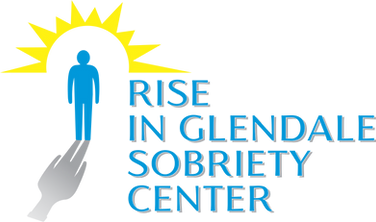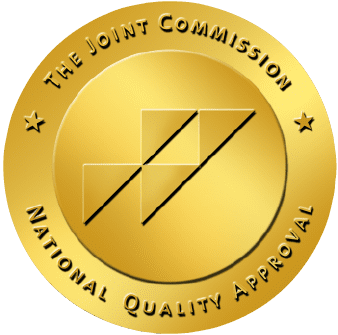in Los Angeles
Fentanyl Rehab
In Los Angeles California
Welcome to Rise Sobriety Center, your trusted partner in overcoming fentanyl addiction in Los Angeles. Our comprehensive fentanyl rehab programs are designed to help you or your loved one break free from the grips of addiction and reclaim a healthy, fulfilling life.
Understanding
Fentanyl Addiction

Fentanyl is a powerful synthetic opioid similar to morphine, but about 100 times more potent. It is prescribed for severe pain management but is often misused due to its intense euphoric effects. This drug can be administered in several forms, including patches, lozenges, and injectables. Unfortunately, its potency makes it a prime candidate for abuse, leading to severe dependency issues.
Fentanyl’s high potency makes it highly addictive. Even a small amount can lead to addiction, as it rapidly alters the brain’s chemistry, leading to dependency and tolerance. Fentanyl users quickly find themselves needing higher doses to achieve the same effects, creating a dangerous cycle of abuse which can eventually end in overdose. In fact, there were 73,838 overdose deaths involving synthetic opioids other than methadone (primarily fentanyl) in 2022.
Why Choose
Rise Sobriety Center
At Rise Sobriety Center, our mission is to provide compassionate, evidence-based fentanyl treatment to individuals struggling with fentanyl use. We believe in treating the whole person, not just the addiction. Our holistic approach ensures that all aspects of an individual’s life are addressed, from physical health to mental well-being. We are dedicated to helping our clients achieve long-term recovery and lead meaningful, fulfilling lives.

Fentanyl Addiction Treatment
in Los Angeles

Medical Detox
Detoxification is the first step in overcoming fentanyl addiction. It helps to safely remove the drug from the body and manage fentanyl withdrawal symptoms under medical supervision. Detox is crucial because abrupt cessation of fentanyl can lead to severe and potentially life-threatening withdrawal symptoms. A medically supervised detox ensures that clients are safe and comfortable throughout the withdrawal process.
During detox, you will be monitored 24/7 by our medical team to ensure your safety and comfort. Medications may be administered to ease withdrawal symptoms and prevent complications. Our team will also provide emotional support and counseling to help you cope with the challenges of detox. The duration of detox varies depending on the severity of the addiction but typically lasts from a few days to a week.

Inpatient Rehabilitation
Inpatient drug rehab provides a structured and supportive environment where you can focus entirely on your recovery without the distractions of everyday life. Being in a controlled environment reduces the risk of relapse and allows you to concentrate on healing. The immersive nature of inpatient substance abuse treatment ensures that you receive continuous care and support.
Our inpatient programs are tailored to meet your individual needs. We offer a combination of therapy, counseling, and holistic treatments to address all aspects of your addiction. Our multidisciplinary team includes medical professionals, therapists, and support staff who work together to provide comprehensive care. We create personalized fentanyl treatment plans that include one-on-one counseling, group therapy, and activities designed to promote overall well-being.

Outpatient Programs
Our outpatient programs offer flexibility for those who cannot commit to inpatient treatment. You can receive high-quality care while continuing to meet your personal and professional obligations. Outpatient programs are ideal for individuals with a strong support system at home or those transitioning from inpatient care.
Outpatient treatment includes regular therapy sessions, group meetings, and support groups to help you stay on track with your recovery goals. Our programs are designed to provide the same level of care as inpatient treatment but with the added flexibility to accommodate your schedule. We offer various levels of outpatient care, including partial hospitalization programs (PHP) and intensive outpatient programs (IOP), to ensure that you receive the support you need at every stage of your recovery.

Evidence-Based
Treatment Methods
Cognitive Behavioral Therapy (CBT)
CBT is an individual therapy that helps individuals identify and change negative thought patterns and behaviors that contribute to your addiction. It is a cornerstone of our treatment approach. Through CBT, clients learn to recognize triggers, develop coping strategies, and build healthier habits. This therapy is effective in treating a wide range of issues, including anxiety, depression, and substance abuse.
Medication-Assisted Treatment (MAT)
MAT involves the use of medications to reduce cravings and withdrawal symptoms, making it easier to focus on recovery. Medications such as methadone, buprenorphine, and naltrexone are commonly used in MAT to help manage opioid dependence. MAT is most effective when combined with counseling and behavioral therapies, providing a comprehensive approach to treatment.
Group Therapy and Support Groups
Group therapy provides a supportive environment where you can share your experiences and learn from others who are also on the path to recovery. These sessions promote a sense of community and help reduce feelings of isolation. Support groups, such as Narcotics Anonymous (NA), offer ongoing peer support and accountability, which are crucial for long-term recovery.
Holistic Approaches
to Recovery
Mindfulness and Meditation
Mindfulness and meditation practices help reduce stress and anxiety, promoting emotional balance and mental clarity. These practices are integrated into our treatment programs to help clients develop greater self-awareness and resilience. Techniques such as deep breathing, guided imagery, and mindfulness-based stress reduction (MBSR) are taught to enhance relaxation and emotional regulation.
Physical Fitness and Nutrition
A healthy body supports a healthy mind. We incorporate physical fitness and nutrition into our programs to enhance your overall well-being. Regular exercise has been shown to improve mood, reduce cravings, and increase energy levels. Our nutritionists work with clients to develop balanced meal plans that support recovery and overall health. Nutritional education and cooking classes are also offered to help clients make healthier food choices.

How to
Get Started
Our admission process is simple and straightforward. Contact us today to speak with one of our admissions specialists who will guide you through the process. We begin with a comprehensive assessment to determine the appropriate level of care and create a personalized Substance use disorder treatment plan. Our team will also assist with any necessary paperwork and coordinate with your insurance provider to ensure a smooth admission process.
We will provide you with a list of items to bring to ensure you are comfortable during your stay with us. This list typically includes personal hygiene items, comfortable clothing, and any prescribed medications. We also recommend bringing a journal or notebook to document your journey and any materials that may help you feel more at home.
Start your
Journey to Recovery
At Rise Sobriety Center, we are dedicated to helping you overcome fentanyl addiction and reclaim your life. Our rehab center offers a comprehensive and compassionate approach to substance use treatment ensuring that you receive the support you need at every stage of your recovery journey. From medical detoxification to outpatient programs, our evidence-based methods and holistic therapies provide a robust foundation for lasting sobriety. If you or a loved one is struggling with fentanyl addiction, don’t hesitate to reach out to us. We are here to help you every step of the way.
Your Journey to Living a Life Free of Addiction, Starts Here!
Frequently Asked
Questions
Fentanyl is a potent synthetic opioid used for pain management but often misused for its euphoric effects, leading to addiction. It is much stronger than other opioids like morphine and heroin, making it highly dangerous when abused.
The duration of rehab varies depending on individual needs but typically ranges from 30 to 90 days. Some individuals may require longer treatment periods to ensure a stable and lasting recovery.
Detox can be uncomfortable, but our medical team will provide medications and support to manage withdrawal symptoms effectively. The severity of withdrawal symptoms varies, but we prioritize your comfort and safety throughout the detox process.
If you relapse, we are here to help you get back on track. Relapse is a part of recovery for many people, and we offer support and resources to help you regain your footing. Our team will work with you to understand the triggers that led to the relapse and develop strategies to prevent future occurrences.
A fentanyl overdose can be life-threatening and requires immediate medical attention. Symptoms of a fentanyl overdose include:
- Severe drowsiness or inability to wake up: The person may appear to be in a deep sleep and cannot be awakened.
- Slow or stopped breathing: Respiratory depression is a critical sign, where breathing becomes very slow or stops altogether.
- Pinpoint pupils: The pupils become extremely small and constricted.
- Cold, clammy skin: The skin may feel cool and moist to the touch.
- Blue or purple lips and fingernails: This indicates a lack of oxygen in the blood.
- Weak or no pulse: The heart rate may be slow or absent.
- Unconsciousness: The person may be unresponsive or in a coma-like state.
If you suspect someone is experiencing a fentanyl overdose, call emergency services immediately and administer naloxone (Narcan) if available. Naloxone can temporarily reverse the effects of an opioid overdose and is a critical intervention while waiting for professional medical help.

